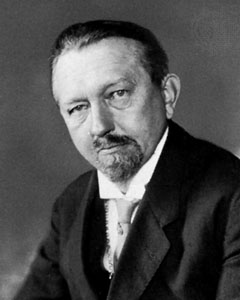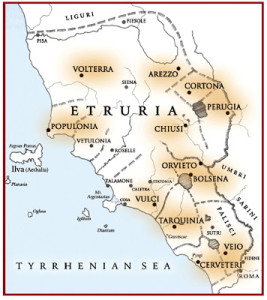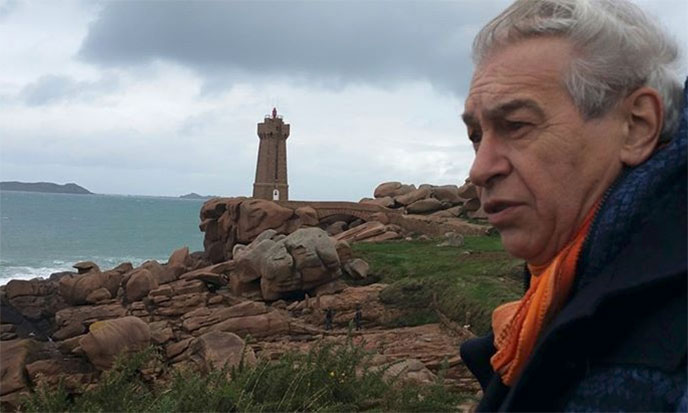Yoruba
Yoruba People
The Yoruba people of West Africa were first brought to the attention of Atlantis seekers in the early years of the 20th century by Leo Frobenius who placed Atlantis in the Yoruba region of Nigeria. Frobenius believed that the Etruscans had an Atlantean culture and were responsible for the establishment of Benin around 1300 BC and it was a city in this region that had been described by Plato. In 1910 he published, in German, Atop the Rubble of Classical Atlantis which filled three large volumes.
Apart from some initial media attention Frobenius’ claims received little attention until a century later when an exotic suggestion regarding the Etruscans came from Xavier Séguin, who claimed that they share a common ancestry with the Yoruba of West Africa, as both originated in Atlantis(c), a concept clearly ‘borrowed’ from Frobenius! This attempted revival received little attention.
Related, but unconnected with Atlantis studies are the claims of “Dierk Lange(d), Prof. Dr Emeritus, of Bayreuth University in Germany, who has performed extensive research concerning many West African groups and their origins in the Near East. In the abstract to one of his many essays, “Dierk Lange: Origin of the Yoruba and “The Lost Tribes of Israel”,” Dierk confirms the traditions of a Levantine (Israelite) origin of the Yoruba Nigerians.”(a)(b)(e)
(c) http://eden-saga.com/en/survivors-from-atlantis-frobenius-sixteen-gods-oracle-of-fa.html
Séguin, Xavier
Xavier Séguin (1949- ) is the French author of the Eden Saga website(a). We have encountered Séguin in Atlantipedia in relation to a number of subjects. Some of his ideas are, in my opinion, simply daft. For example, he suggests that megalithic dolmens and menhirs can generate vril energy, which can be used to expedite the maturing of wine(b)!
The most exotic suggestion regarding the Etruscans comes from Séguin, who has claimed that they share a common ancestry with the Yoruba of West Africa, as both originated in Atlantis(c), a concept ‘borrowed’ from Leo Frobenius. He also offered a most extreme theory regarding the Olmecs with the claim that they were astronauts. This idea was expressed(d) by Séguin, quoting US astronaut Gordon Cooper [1757]!
However, I considered Séguin to be totally unreliable when I found that he also quoted a fictional character, Professor Mortimer, from a work by the renowned writer, Edgar P. Jacobs, as supposedly uttered by a real scientist(e), in relation to the Pillars of Heracles.
He denies that Atlantis was situated on the floor of the Atlantic, instead he proposes that Atlantis, Punt, Mu and Hyperborea had all been satellites(f)! Similar ideas were put forward Dieter Bremer.
(a) Sources Archives – Eden Saga – english (eden-saga.com)
(c) http://eden-saga.com/en/survivors-from-atlantis-frobenius-sixteen-gods-oracle-of-fa.html
(d) http://eden-saga.com/en/gordon-cooper-finds-olmecs-deep-knowledge-in-astronautics.html
Ten Lost Tribes of Israel
The Ten Lost Tribes of Israel is a reference to the ten of the twelve tribes deported from the Kingdom of Israel after its conquest by Assyria in 722 BC. It has been pointed out that the Hebrew Bible has relatively little to say on the matter.
In 1865, Brasseur de Bourbourg discovered some of Bishop Diego de Landa‘s lost documents. He studied the thoroughly flawed interpretation of Mayan hieroglyphics by de Landa, produced in the 16th century and proceeded to develop his own faulty translation.
Nigel Davies has revealed [1635] that Brasseur, as well as Lord Kingsborough (1795-1829), concluded that the native Americans were the Ten Lost Tribes of Israel. Kingsborough spent a £40,000 fortune publishing The Antiquities of Mexico in nine huge volumes, an extravagance that landed him in a Dublin debtors’ prison for non-payment of bills relating to publication costs and sadly, he died there.
The variety of identifications put forward for some or all of these groups is quite remarkable, ranging from the reasonable to the ridiculous. At one end of that spectrum, the view “is that the “lost tribes of Israel” were never really lost. Many of the Jews who remained in the land after the Assyrian conquest re-united with Judah in the south (2 Chronicles 34:6–9). Assyria was later conquered by Babylon, who went on to invade the Southern Kingdom of Israel, deporting the two remaining tribes: Judah and Benjamin (2 Kings 25:21). Remnants of the northern tribes would have thus been part of the Babylonian deportations. Seventy years later, when King Cyrus allowed the Israelites to return to Israel (Ezra 1), many (from all twelve tribes) returned to Israel to rebuild their homeland.” (a)
>>At this point I must mention Leo Frobenius, who, over a century ago, nominated the Yoruba territory of Nigeria as the home of Atlantis!<<
At the other end is the entertaining idea that the Lost Tribes inhabit the interior of a Hollow Earth, which is defended by flying saucers!(b)
Another unexpected claim, with a tenuous Atlantis connection, comes from “Dierk Lange(a)(h)*, Prof. Dr Emeritus, of Bayreuth University in Germany, who has performed extensive research concerning many West African groups and their origins in the Near East. In the abstract to one of his many essays, “Dierk Lange: Origin of the Yoruba and “The Lost Tribes of Israel”,” Dierk confirms the traditions of a Levantine (Israelite) origin of the Yoruba Nigerians.”(d)(e)
Nearly as extreme is the attempt to link the Lost Tribes with Atlantis, a combination that would not normally leap to mind. However, some have attempted to justify such a linkage in spite of the contradictions between Plato’s story and the details of this minority opinion.
This alleged relationship between Atlantis and Israel points out that the Biblical patriarch Jacob who had twelve sons, excluded two of them, Levi and Simeon. Jacob is then presented as having been Poseidon with the ten remaining sons ruling Atlantis. One of Jacob’s sons, Gad, is assumed to have been Gadeiros, one of the ten sons of Poseidon. After that, no further parallels are offered to connect Jacob’s other sons with the remainder of Poseidon’s offspring.
In Britain, “Richard Brothers (1757–1823), a retired naval officer and a radical Calvinist, revealed himself as a prophet of the lost tribes in 1794 in London. The fact that he was writing from the confinement of Fisher Mad-House, Islington, did not deter many from following him and producing the doctrine of Anglo-Israelism: a fiercely nationalist theology based on the idea that the British Isles were the home of the lost tribes.” (c)
A 2016 paper by Prof. W.A Liebenberg begins the Introduction(g) with “ Dolmens and Megalithic Monuments originated in Ancient Israel. The prophet Jeremiah (31:21) is instructed to make it clear that the Ten Tribes will construct a trail of Megalithic Monuments from their homeland Israel to their places of deportation and further migration into the nations, and evidence of this path will be a vivid reminder of their forefathers and will also enable them to return. Such a trail undoubtedly exists and is embedded in the earth’s crust! It is the Trail of the Dolmens from the Middle East to the various nations.”
To suggest that the megaliths mark the tribal dispersal routes is to my mind utter nonsense. Judging by the number of megaliths spread throughout the world there should be thousands of ‘lost tribes’, not to mention that the biblical lost tribes disappeared in the 8th century BC, even though the megaliths are scientifically dated to the 5th millennium BC!
Also See: Agartha, Baer, Baucum, Bible, Davidiy, Eurenius, Olivier, Salverda and Wauchope.
(a) https://www.gotquestions.org/lost-tribes-Israel.html
(b) https://www.ourhollowearth.com/ourhollo/index.html
Frobenius, Leo
Leo Frobenius (1873-1938), was a German ethnologist and a leading  authority on prehistoric art. He travelled extensively in West Africa and published many books on the cultures of the region. He placed Atlantis in the Yoruba region of Nigeria. Frobenius believed that the Etruscans had an Atlantean culture and were responsible for the establishment of Benin around 1300 BC and that it was a city in this region that had been described by Plato.
authority on prehistoric art. He travelled extensively in West Africa and published many books on the cultures of the region. He placed Atlantis in the Yoruba region of Nigeria. Frobenius believed that the Etruscans had an Atlantean culture and were responsible for the establishment of Benin around 1300 BC and that it was a city in this region that had been described by Plato.
I must point out that Frobenius was not the first to propose Nigeria as the home of Atlantis. Cyril Hammond Elgee (1871-1917) was the British Resident (local administrator) in Ibadan, Nigeria from 1902 until 1913. In 1914 he wrote a paper entitled The Evolution of Ibadan(h). His suggestion that Nigeria had been the location of Atlantis predated by some years the publication of Frobenius’ theory.
Jason Colavito has drawn attention to the racism displayed by Frobenius, an example of which is when he declared that the Atlantean civilisation of Yorubaland had been white(d). A report of his 1912 expedition was published and is now available online [1279].
He reported on his discoveries to the German Kaiser, who showed great interest in his work.
Five expeditions gave him enough information to publish a twelve-volume work entitled Atlantis. During his work there Frobenius wrote to friends complaining that local English officials had confiscated many of his finds(c).
In 1910 he published, in German, Atop the Rubble of Classical Atlantis that filled three large volumes. Much of his work is currently being translated into English and French.
Another site(a) reviewing Frobenius’ work also claims that he linked the ancient Yoruba kingdom with that of the Etruscans and suggests a common Atlantean ancestry. The same site backs a central Atlantic location for Atlantis, citing as ‘evidence’ the 18th century Bauche map(b).
Three papers taken from Frobenius’ work have been published on the Atlantisforschung website, with an English translation here(e)(f)(g).
(a) Back To Yoruba Country – Eden Saga – english (archive.org)
(b) https://eden-saga.com/en/greek-philosophy-mythology-timeos-critias-plato-s-atlantis.html
(c) https://trove.nla.gov.au/ndp/del/article/207225672?searchTerm=Atlantis discovered&searchLimits=
(e) Über die Bedeutung: “Atlantis” (Teil I) – Atlantisforschung.de (atlantisforschung-de.translate.goog)
(h) http://books.google.ie/books/about/The_Evolution_of_Ibadan.html?id=vyQZAAAAIAAJHYPERLINK “
Etruscans
The Etruscans were an ancient people of Etruria (now Tuscany) in Italy. They occupied an area somewhere between Rome and Florence  from the 8th century BC until incorporated into the Roman Empire in the 2nd century BC. They do not appear to have been particularly expansionist as the only Etruscan settlement on Sardinia, which was not discovered until the 21st century, on the Tavolara isle off the coast near Olbia(o).
from the 8th century BC until incorporated into the Roman Empire in the 2nd century BC. They do not appear to have been particularly expansionist as the only Etruscan settlement on Sardinia, which was not discovered until the 21st century, on the Tavolara isle off the coast near Olbia(o).
It is thought that they originally came from Asia Minor before 800 BC, a suggestion that originated with Herodotus. This view has been given recent (2007) support by the results of DNA studies carried out at Pavia University. Another study of Etruscan mtDNA estimated “that the genetic links between Tuscany and Anatolia date back to at least 5,000 years ago, strongly suggesting that the Etruscan culture developed locally, and not as an immediate consequence of immigration from the Eastern Mediterranean shores.” (e).
Stefan Anitei, who supports an Anatolian, or more specifically a Lydian, origin for the Etruscans, cited “A recent (2007) DNA analysis showed that (the Bos Taurus) cattle in central Italy seem indeed to have originated in modern Turkey and the Middle East. As there is no link between these cattle and others from other European regions, they must have entered the peninsula by sea.” (n).
However, a study published in 2022 has challenged the idea of an Anatolian origin for the Etruscans, instead, it claims that they were “actually descended from pastoralists (sheep herders) who moved into the region from the steppes during the late Neolithic and Bronze Age from approximately 6,000 BC to 3,500 BC.”(v)
Some decades ago, Professor Licinio Glori also supported an eastern Mediterranean origin for the Etruscans(i). However, he has also claimed a common origin for the peoples of the Americas and Europe, including Etruscans, without identifying this shared ancestry(j).
It has also been suggested that the Etruscan culture has shown distinctive Indian influences.(l)
Until their written language can be translated there will remain an air of mystery about them. Even then because of the paucity of material available in their language, it is probable that little will be gleaned from it. Mark Cartwright’s excellent site has further information on the Etruscan script(k) and many articles on different aspects of Etruscan culture. A 2016 report(h) revealed the discovery of a stele that has at least 70 legible Etruscan letters and punctuation marks on it. Hopefully, this find will help to advance the translation of this language.
The site of the ancient city of Chiusi has been assumed by some to be the location of Clusium, the capital of the Etruscan king, Lars Porsena. This suggestion is based on the fact that the two names mean the same, namely ‘closed’. However, Giuseppe Centauro believes that he found the real Clusium near Florence, where he identified two concentric walls about 10 miles in circumference. The extensive walls have resonance with Plato’s description of Atlantis. If he is correct, Clusium may at one time have been the biggest city in Italy(f). Centauro is currently seeking permission to excavate there.
At Orvieto, nearly 100km north of Rome, Professor Simonetta Stopponi is investigating the possible location of the Fanum Voltumnae, where the leaders of the Etruscan city-states met every year to discuss policy. This meeting also echoes the regular meeting of the kings of the Atlantean federation.
It is worth highlighting that Tyrrhenia, the Greek name for Etruria, is one of the few places whose location is not disputed and is mentioned by Plato as bordering (Critias 114c & Timaeus 25b) Atlantean territory. It is, therefore, reasonable to expect that south of Etruria in mainland Italy, some remnants of Atlantis may yet be identified.
In his recent book[630] Richard W. Welch is quite happy to designate the Etruscans as “the last Atlanteans of which we have much knowledge”. Frank Joseph echoed the same idea, writing that “the Etruscans were themselves nothing more than the late Atlanteans who colonised western Italy, so their surviving material culture offers us a glimpse of Atlantis at its cultural height.”[636.21] He repeats this claim of an Etruscan link with Atlantis in several of his books, as well as in an article in Atlantis Rising magazine #48(u)
In 1962, the French linguist Maurice Guignard claimed[1109] to have deciphered the Etruscan language and also suggested that the Etruscans might have come from Atlantis. Such comments conflict with Plato’s account, which locates the territory of the Atlanteans separate from and further south than that of the Etruscans.
Confusing matters is a 2006 report from researchers at Stanford University, using “novel statistical computer modelling to simulate demographic processes affecting the population of Tuscany over a 2,500-year time span. Rigorous tests used by the researchers have ruled out a genetic link between ancient Etruscans, the early inhabitants of central Italy, and the region’s modern-day residents.“(s)
Recently, a study(t) by a team of scholars from Germany, Italy, the USA, Denmark and the UK, published in 2021, shows that the Etruscans “were closely related to their italic neighbors, and reveal major genetic transformations associated with historical events.” However, they also note that “the persistence of a non-Indo-European Etruscan language is an intriguing and still unexplained phenomenon that will require further archaeological, historical, linguistic and genetic investigation.”
The late Steven Sora suggested [0395] that the Etruscans were refugees from their original homeland in Iberia, where he also located Troy/Atlantis. He specified Lisbon, Setubal and Troia, all in modern Portugal, as Trojan/Atlantean territory, conflating the Trojan and Atlantean wars!
The internet offers a valuable site(a) giving a good overview of the Etruscans, including a valuable bibliography and collection of related web links.
Another mystery relating to the Etruscans concerns an Egyptian mummy, which was bought in Alexandria and brought to Europe in the mid-19th century. When it was eventually unwrapped Etruscan writing was discovered on the linen!(q)(r)
Professor Natalia Rosi de Tariffi (1907-?), is Italian by birth, but lived in Venezuela and has highlighted the many similarities between the Etruscan language and that of Quechua and Aymara spoken in the Andes of South America. In her well-regarded 1969 book, America cuarta dimension [1927] she proposed the migration of the Etruscans FROM America TO Europe.
The controversial Italian researcher, Dr Mario Gattoni Celli, writing in the 1960s, proposed that the Etruscans had voyaged to South America, basing his opinion on linguistic and other cultural similarities. This view is apparently supported by Diodorus Siculus (History, Book V, 19+) who refers to the ‘Tyrrhenians’ setting up a colony on an island, with navigable rivers, at a great distance from the inhabited world(c). Adding some confusion to this is the claim that Old World languages had migrated FROM the Americas!!(d) Alf Bajocco wrote a piece in Sykes’ Atlantis magazine on Celli’s ideas(c).
The most exotic suggestion regarding the Etruscans comes from Xavier Séguin, who has claimed that they share a common ancestry with the Yoruba of West Africa, as both originated in Atlantis(m)! Séguin quotes the work of Leo Frobenius in support of this contention, highlighting the significance of the number sixteen in both cultures.
Caleb Howells has written an interesting paper on the gradual fall of the Etruscan civilisation that ended with attacks from the Romans in the south and the Celts in the north(w).
(a) https://web.archive.org/web/20190831235749/https://www.mysteriousetruscans.com/
(c) Atlantis, Vol 19. No.1, Feb/Mar 1966
(d) https://web.archive.org/web/20181218003239/http://www.ancient-mysteries-explained.com/language-mysteries.html or http://web.archive.org/web/20210616235641/https://atlantipedia.ie/samples/archive-2607/
(e) Origins and Evolution of the Etruscans’ mtDNA (archive.org)
(f) http://archives.dailynews.lk/2004/11/23/fea05.html
(g) https://www.newscientist.com/article/dn11174-on-the-origin-of-the-etruscan-civilisation/
(i) St. Petersburg Times. Nov. 25 1957
(k) https://www.ancient.eu/Etruscan_Language/
(l) https://vediccafe.blogspot.ie/2014/05/the-ramayana-in-roots-of-pre-christian.html
(m) https://eden-saga.com/en/survivors-from-atlantis-frobenius-sixteen-gods-oracle-of-fa.html
(n) https://news.softpedia.com/news/Where-Did-the-Etruscans-Originated-54317.shtml
(o) Etruscan settlement found in Sardinia for first time – Culture – ANSAMed.it (archive.org)
(p) Atlantis, Vol.19, No.3, May/June 1966
(q) https://web.archive.org/web/20160329142153/http://www.dacia.org/history/gara_e.html
(r) http://www.maravot.com/Translation_Zagreb_Mummy.html
(s) Ancient Etruscans Unlikely Ancestors Of Modern Tuscans, Statistical Testing Reveals | ScienceDaily
(u) Atlantis Rising magazine #48 At – PDF Archive
(v) https://greekreporter.com/2022/08/13/dna-study-finds-etruscans-originated-steppes/
(w) https://www.thecollector.com/fall-of-the-etruscans/

